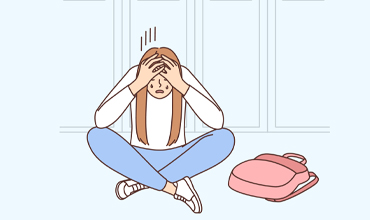Q We have an eight-year-old son who is worried about going to a new school this year. He thinks the other kids won’t like him and will bully him. He worries that he won’t get good grades. How can my husband and I help him decrease his anxiety?
Worry and anxiety have become common experiences for school-age children. Dr. Koplewicz, from the Yale Child Study Center, says that anxiety affects more than one in 10 adolescents and children. As a therapist, I’m seeing more children who do not want to attend school because of serious anxiety.
A In many cases, a child with anxiety and worry can be greatly helped with therapy alone or sometimes with therapy and medication. The last child I worked with was able to reduce worry and anxiety to a level that helped her succeed in school, build friendships and develop confidence. Therapists use many techniques such as positive reinforcements, tapping, exploring past traumas and many more.
Here are some suggestions for you:
- Children mimic their parents in terms of anxiety and worry, so as parents, be conscious of how you manifest your stress in front of kids.
- Take your child to a psychiatrist who specializes in children. Anti-anxiety medication, along with psychotherapy, is sometimes the best course of action, depending on the severity of symptoms.
- Help your child get busy doing something physically active when worry cycles set in. Encourage your child to ride a bike, jump on a trampoline or find a neighbor friend who can play for a few hours outside.
- Validate your child’s feelings. “I understand that you are worried.” Avoid what is referred to as toxic positivity. For example, “It could be worse,” “Just cheer up,” or “You’ll get over it.”
- Have your child draw his feelings.
- Help your child relax at bedtime with a warm bath and reading some happy stories.
You have been presented with a parental challenge. I feel certain you can help your child. Dr. Koplewicz has said,” As parents, caregivers and educators we can be part of the problem, but we are also the biggest part of the solution.”
Betty Richardson, PhD, RN, CS, LP, LMFT, is an Austin-based psychotherapist.
















